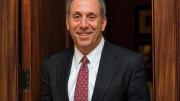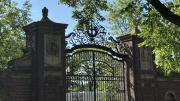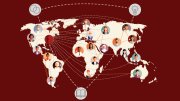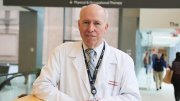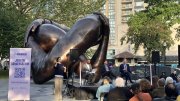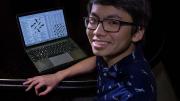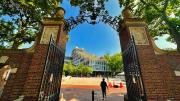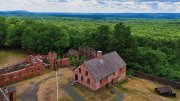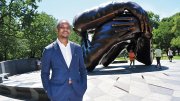Though it is not the case for an increasing number of alums, many of us can still remember a time before the internet. When the technology really started to catch on, I was at MIT writing about real estate capital markets. There was widespread speculation that the internet would bring about the death of location. Commerce and work would migrate online; retail and office space would become obsolete; cities would empty; people would connect, in large part, virtually. Much of life as humanity had known it for centuries would quickly disappear. Candidly, I was skeptical.
Now, as we slowly emerge from the pandemic and more than a year of working remotely, some are again speculating that work will happen from anywhere and that people will abandon dense urban areas for more bucolic life in the country. Once again, I am skeptical. Though we can all be highly productive online, forced separation has taught us what we have missed. Work is a social function. Casual conversation humanizes our efforts and enables us to form relationships that go beyond organization charts. The opportunity to be social—intentionally or spontaneously—makes our lives better and our communities stronger. At the same time, certain types of activities are also difficult to replicate over Zoom: encounters with unique primary sources, collective efforts at lab benches, performances of all kinds in spaces and places across our campus. These moments and so many others make our University what it is, and I cannot wait until we can be together again.
When will that day come? Since March 10, 2020, the possibility of a full return to campus has loomed large. The quick shift to online learning had numerous silver linings, some of which I have written about in the past, but it also shined a light on what is unique about residential education. For our students, the chance to live among one another—to form relationships in person with people whose backgrounds and experiences differ widely, including our faculty and staff—is an education in itself. Education at a place like Harvard is a full-contact sport. Amazing things happen when students and faculty are combined under temperature and pressure. Getting back to our mission of teaching and research in places and spaces designed and built to advance those ends cannot happen fast enough.
We have also learned, however, that many ways of contributing to the success of the University are not dependent on location. Over the past year, an unexpected trial of widespread remote work yielded results far more positive than I ever expected they would be. Individuals across the University adapted to extraordinary circumstances with tremendous grit and determination, fulfilling the responsibilities of their positions even as they contended with unprecedented challenges. Their commitment encouraged a change in thinking about what working at Harvard might look like once the pandemic is in our rearview mirror.
Rather than agonize over developing a one-size-fits-all approach at an institution known for its decentralization, we have decided to do what Harvard does best: generate new knowledge, new connections, new insights. The balance of this year will be an experiment. Schools and units will explore, develop, and refine policies and practices that suit their needs, seeking ways to maximize both flexibility and productivity. Our hope is that these efforts result in innovations that help make balancing work and life easier throughout the University. We will begin reviewing and assessing our results in early 2022.
It is exciting to think about the year ahead and all that we will learn—about one another and about our work—as we seize on the opportunity to change how Harvard gets things done. If we are successful, I believe it will give many who contribute to our mission new flexibility to do what they do best. It may also give us a competitive advantage attracting the talent that improves the University and drives progress for all.
